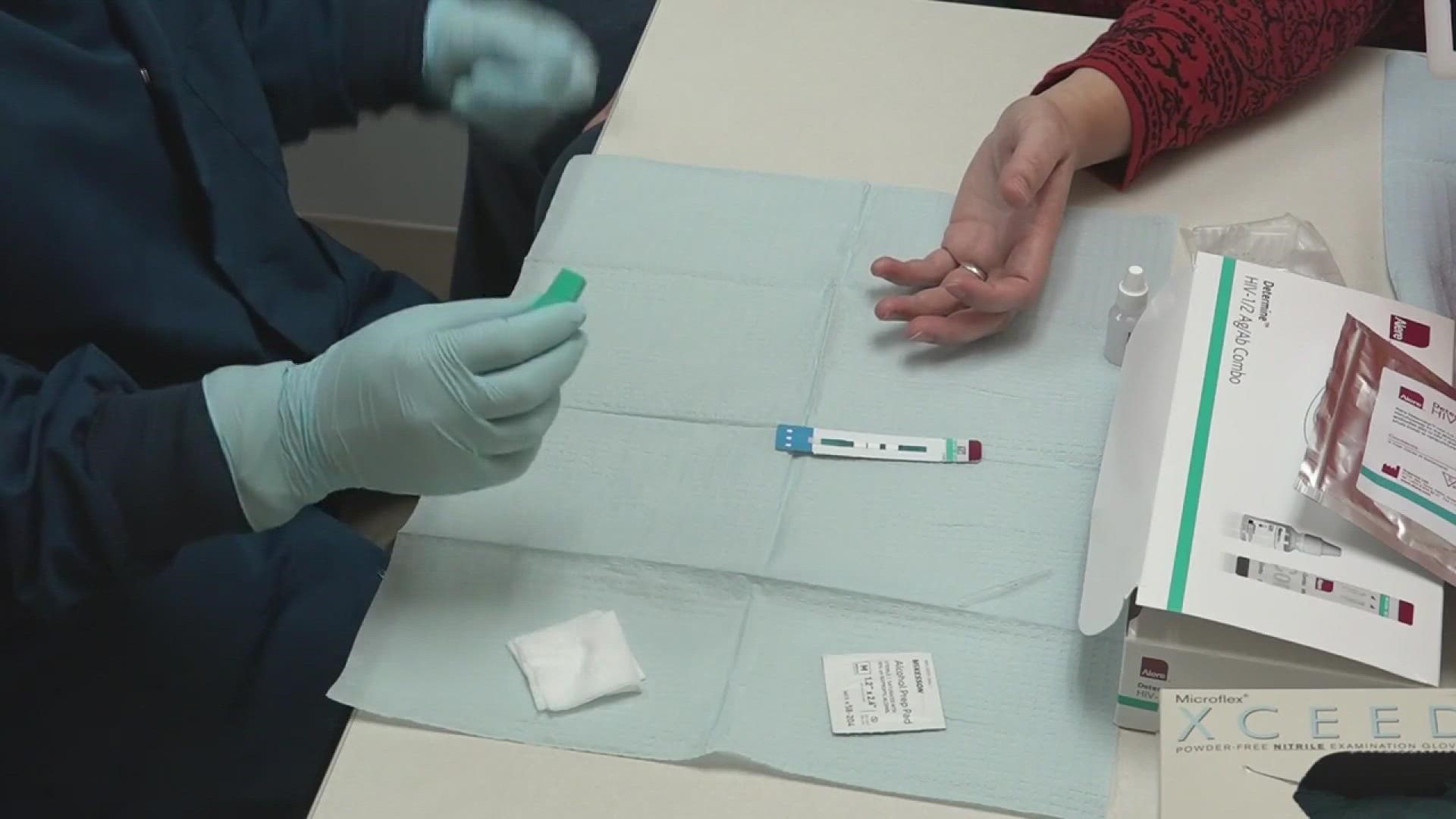Cynthia Pimm moved back to West Michigan from California just as the AIDS Epidemic was reaching the Midwest. Since the 1980's, she's been on the frontline of the battle against the disease, even when society deemed it taboo.
"We saw a lot of prejudice due to just ignorance and fear," Pimm said. "In the early years people were just afraid to get tested."
Pimm works for Hospice of Michigan, formerly Hospice of Greater Grand Rapids, as well as sitting on the Board of Directors of the Grand Rapids AIDS Taskforce from 1987 to 1992. She also was one first staff at Home of Hope, a Hospice residence specifically designed for AIDS Patients.
“These folks were completely inappropriate to put in a nursing home," Pimm said. "They were young vibrant people living with HIV/AIDS."
Pimm said in the early stages of the AIDS Epidemic, misinformation and discrimination ran rampant. The AIDS Taskforce, Home of Hope, and other healthcare providers created a buddy system to ensure hospice patients had someone with them.
“Family was not at the bedside. That was probably one of the hardest things we had to deal with as staff,” Pimm said.
People who had been diagnosed with the immune disorder would move from both east and west coast cities back home to West Michigan. She said people would land at the airport with nobody to greet them, often having to send ambulances to pick up patients.
"To have to call family members that were local here in grand rapids area and say ‘your loved one is here with us dying, would you please come’, Pimm recalled. "And they did not.”
Judgement and misinformation made every aspect of caring for patients harder. Pimm said companies would fire people who had been diagnosed at the first sign of symptoms. Landlords would evict AIDS patients, even local food banks would not serve food, forcing Home of Hope to provide even more resources.
Decades later, Pimm says she has hope for the fight against AIDS. She says much more work needs to be done worldwide, and believes Americans have turned their head to the greater impact of the disease in the developing world. She mentioned the speed with which people worked to discredit South African scientists discovering the omicron variant as a sign of inequity in the fight.
In the decades since the beginning of the AIDS epidemic, treatments and medical technology have evolved by leaps and bounds. PrEP is an effective way to prevent HIV, testing is much ore widely available, and treatments options have made it possible to prevent the disease from spreading.
"People who are on treatment and become undetectable cannot spread HIV," said April Hight with the Kent County Health Department. "We've really come a long way."
KCHD made HIV and STD tests available to the public for walk in's on Wednesday honoring World AIDS Day. Testing is available Monday through Friday regularly, but an appointment is needed prior.
More resources for HIV/AIDS Prevention, treatment or support can be found through The Grand Rapids Red Project. They offer HIV testing, peer support groups, and HIV case management among other services.
►Make it easy to keep up to date with more stories like this. Download the 13 ON YOUR SIDE app now.
Have a news tip? Email news@13onyourside.com, visit our Facebook page or Twitter. Subscribe to our YouTube channel.

